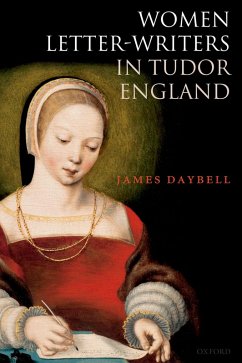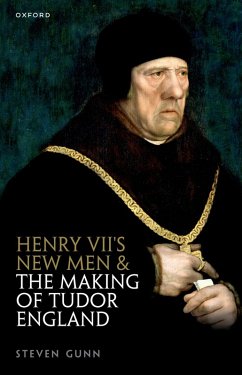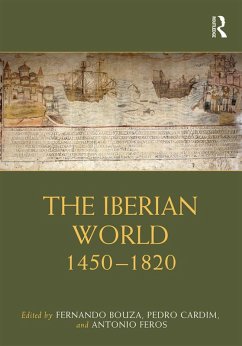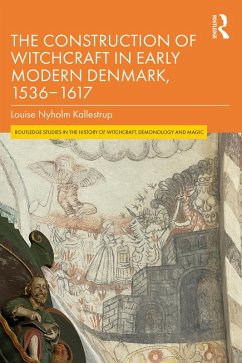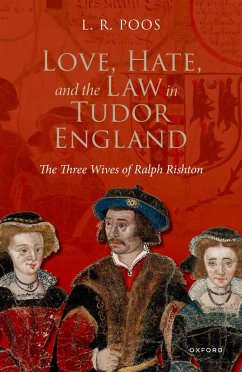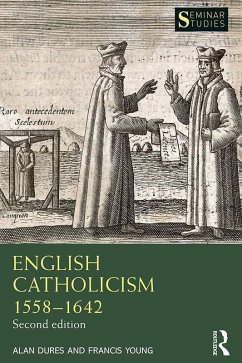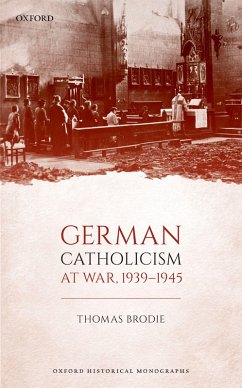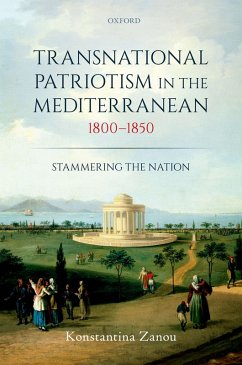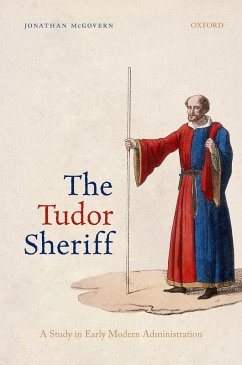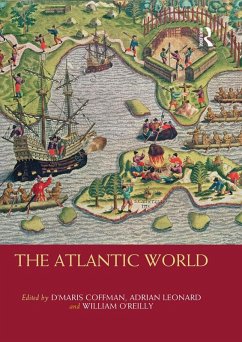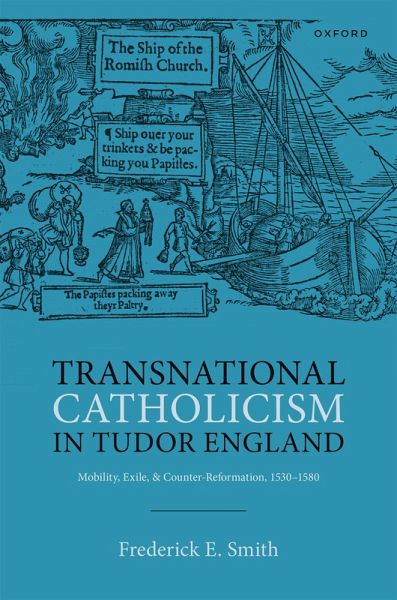
Transnational Catholicism in Tudor England (eBook, PDF)
Mobility, Exile, and Counter-Reformation, 1530-1580
Versandkostenfrei!
Sofort per Download lieferbar
49,95 €
inkl. MwSt.
Weitere Ausgaben:

PAYBACK Punkte
25 °P sammeln!
Transnational Catholicism in Tudor England details the relationship between transnational mobility and the development of Tudor Catholicism. Almost two hundred Catholics felt compelled to exile themselves from England rather than conform with the religious reformations inaugurated by Henry VIII and Edward VI. Frederick E. Smith explores how these émigrés' physical mobility reconfigured their relationships with the men and women they left behind, and how it forced them to develop new relationships with individuals they encountered abroad. It analyses how the experiences of mobility and displa...
Transnational Catholicism in Tudor England details the relationship between transnational mobility and the development of Tudor Catholicism. Almost two hundred Catholics felt compelled to exile themselves from England rather than conform with the religious reformations inaugurated by Henry VIII and Edward VI. Frederick E. Smith explores how these émigrés' physical mobility reconfigured their relationships with the men and women they left behind, and how it forced them to develop new relationships with individuals they encountered abroad. It analyses how the experiences of mobility and displacement catalysed a shift in their religious identities, in some ways broadening but in others narrowing their understandings of what it meant to be 'Catholic'. The author examines the role of these émigrés as agents of religious exchange, circulating new doctrinal and devotional ideas throughout western Europe and forging new connections between them. By focussing particularly upon those individuals who subsequently returned to their homeland during Mary I's Catholic counter-reformation, the study also explores the lasting legacies of these émigrés' displacement and mobility, both for the émigrés themselves as they grappled with the difficulties of re-integration, but also for the broader development of English Catholicism. In this way, Transnational Catholicism in Tudor England deepens our understanding of the complex and sometimes contradictory ways in which exile shapes religio-political identities, but also underlines the importance of international mobility as a crucial factor in the development of English Catholicism and the wider European Catholic Church over the mid sixteenth century.
Dieser Download kann aus rechtlichen Gründen nur mit Rechnungsadresse in A, B, BG, CY, CZ, D, DK, EW, E, FIN, F, GR, HR, H, IRL, I, LT, L, LR, M, NL, PL, P, R, S, SLO, SK ausgeliefert werden.




